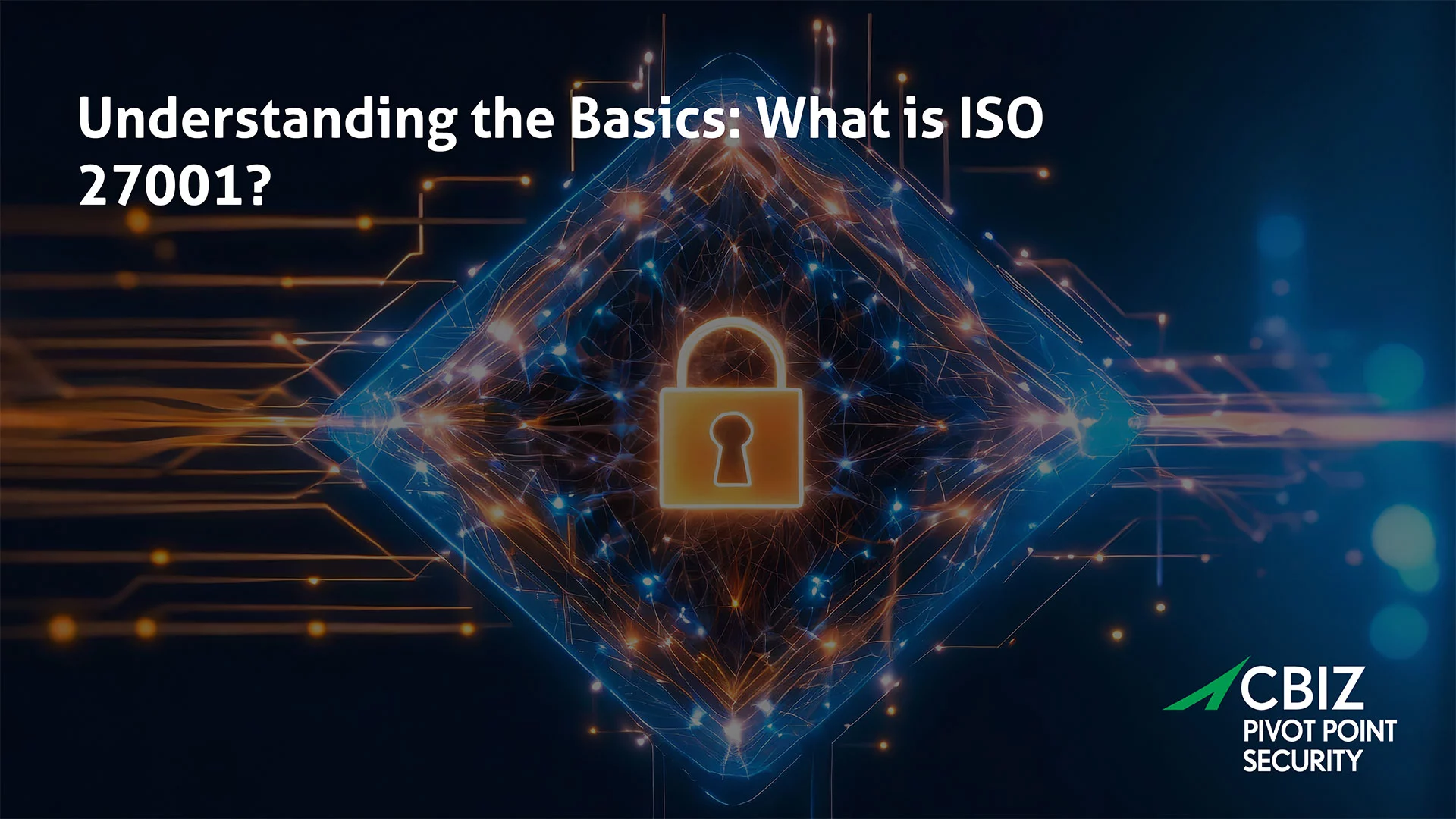Last Updated on January 15, 2024
ISO/IEC 27001:2022, better known as just ISO 27001, is an internationally recognized information security standard that offers best-practice guidance for planning, implementing and maintaining an information security management system (ISMS). Its goal is to enable organizations to protect sensitive data, comply with regulations, and demonstrate a robust information security posture to stakeholders via independent audits.
ISO 27001 includes recommendations and requirements for information security controls, as well as documentation, internal audit procedures, senior management involvement, continuous improvement, and more. The standard is meant to be adapted to an organization’s specific information security risks.
What is ISO 27001 certification?
ISO 27001 is the world’s best-known certifiable standard for managing a best-practice information security program.
An ISO 27001 certification is an attestation by an accredited third party that your organization’s ISMS complies with the ISO 27001 standard
An ISO 27001 certificate is the global “gold standard” to prove to anyone who asks that you can protect sensitive data.
What are the 3 principles of ISO 27001?
ISO 27001 comprehensively addresses the 3 key principles of protecting sensitive data:
- Confidentiality—Only authorized users, systems, etc., have the ability to access sensitive data
- Integrity—Sensitive data is valid and safe from tampering and manipulation both at rest and in transit, and only authorized users, systems, etc., can modify it.
- Availability—Authorized users, systems, etc., must be able to access sensitive data anytime it is needed.
How does ISO 27001 benefit organizations?
ISO 27001 not only helps companies protect their most valuable information assets, but also it provides a pathway to independent certification that offers customers, partners, management, and other stakeholders worldwide the highest level of assurance that their data is safe.
The top benefits that ISO 27001 certification offers for organizations include:
- Competitive advantage and differentiation in a global business environment that is increasingly concerned about cybersecurity
- Compliance or alignment with the ever-increasing number of information security and privacy laws and regulations
- Reduced cyber risk and potential major cost savings from preventing data breaches and other cyber incidents
- Greater organizational maturity and improved governance by requiring written documentation, policies, procedures, etc.
How does ISO 27001 improve information security?
ISO 27001 is based on a foundation of managing risk. First you identify the risks, then you systematically rank and treat them.
Ways to treat risk include:
- Avoiding it by implementing controls, such as multifactor authentication or encryption
- Transferring it, usually with cyber liability insurance (CLI)
- Sharing it, such as through a relationship with a managed security service provider (MSSP)
- Retaining it; that is, deciding to accept it without treatment
- Optimizing it by analyzing costs, legal concerns, business needs, and other criteria as well as various probabilities to minimize negative and maximize positive outcomes
The ISO 27001 standard requires organizations to conduct risk assessments to identify and rate potential risks. Once risks are assessed, ISO 27001 guides businesses to systematically manage those risks by applying a best-practice risk treatment in accordance with your company’s unique situation.
What controls and capabilities does ISO 27001 require?
As part of operationalizing and maintaining a compliant ISMS, ISO 27001 mandates that you implement, document, and utilize procedures to cover:
- Cyber risk management, including implementing technical information security controls per ISO 27001’s Annex A and ISO 27002
- Monitoring, analyzing, and evaluating security data and other key performance indicators (KPIs) to understand your cybersecurity program’s effectiveness, weak areas, and ISO 27001 nonconformities
- Continuous improvement based on risk management and KPIs
How does ISO 27001 generate ROI?
ISO 27001 certification delivers positive and sustained business value in two important ways:
- It preserves business value by reducing business risk, especially by decreasing the probability and likely impacts of a data breach
- It creates business value through sales enablement and competitive leverage, such as retaining current customers and winning more new customers
Just blocking one ransomware attack could save your business hundreds of thousands of dollars—more than enough to cover your initial and ongoing ISO 27001 certification investment. ISO 27001 compliance will also help maximize the return on your overall cybersecurity investments in people, process, and technology.
Being able to prove that your business can keep sensitive data secure is a competitive differentiator that positions your business as mature and trustworthy. It is also often essential to win bigger contracts with bigger clients that mandate strong cybersecurity for supply chain partners.
What does the ISO 27001 certification process look like?
The ISO 27001 certification journey is a multi-step process. First, you will clarify the scope of your ISMS and determine the difference between your cybersecurity current controls and what you need for compliance.
Next, you’ll create and execute a plan to operationalize your ISMS and validate its effectiveness. Then finally you can undergo your initial certification audit.
If you pass, your initial ISO 27001 certificate is good for three years, at which point you undergo a recertification audit. Annually during the two intervening years you undergo a surveillance audit.
What’s next?
Because ISO 27001 requires an ongoing cycle of audits and recertification, “just getting the certificate” should be seen as just the first step, not your overall goal.
With CBIZ Pivot Point Security as your trusted partner, achieving and maintaining ISO 27001 certification is guaranteed. Our success rate bringing dozens of clients to ISO 27001 certification over 16-plus years is 100%.
To connect with an expert about ISO 27001 certification and how we can help, reach out!























